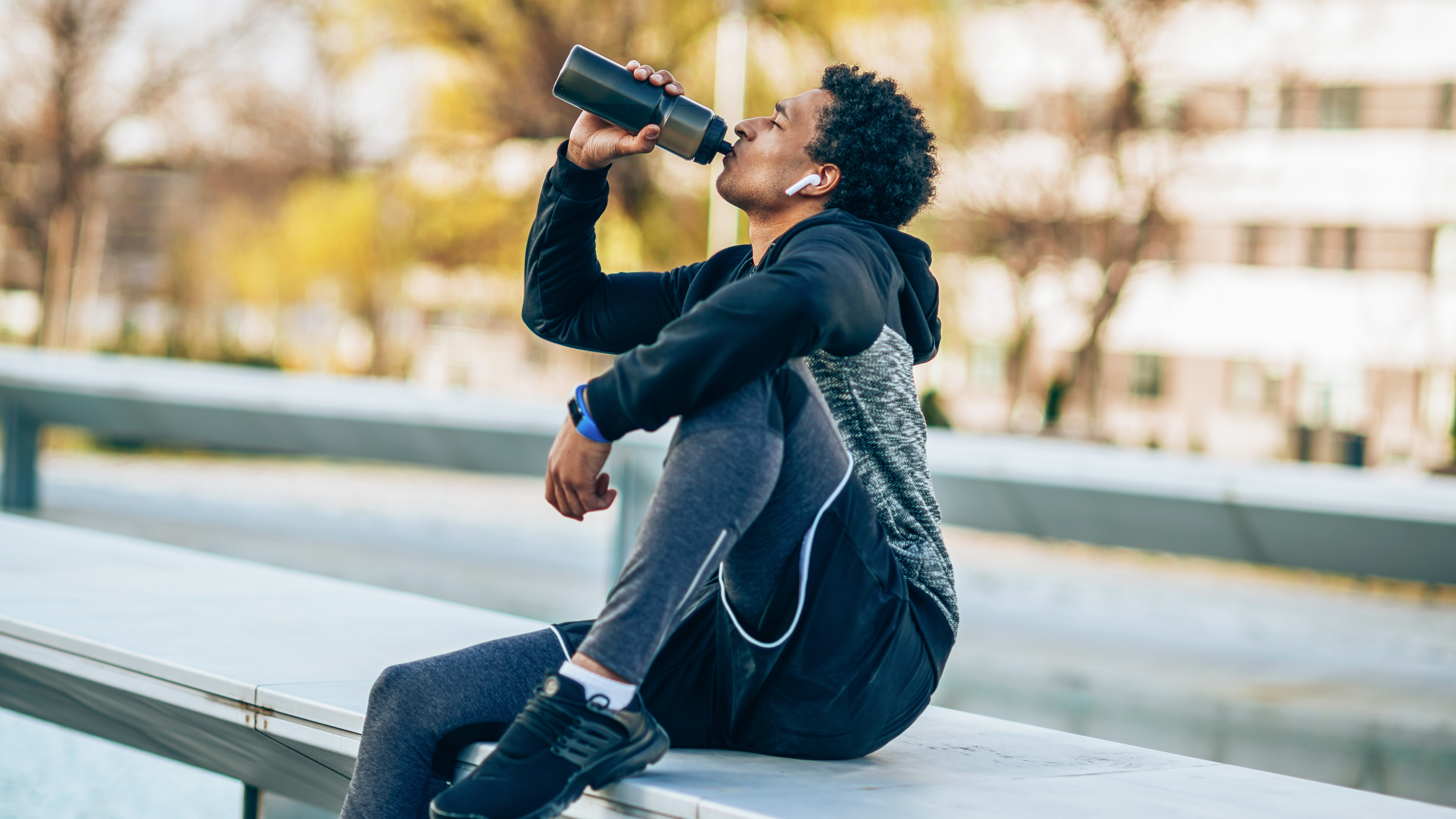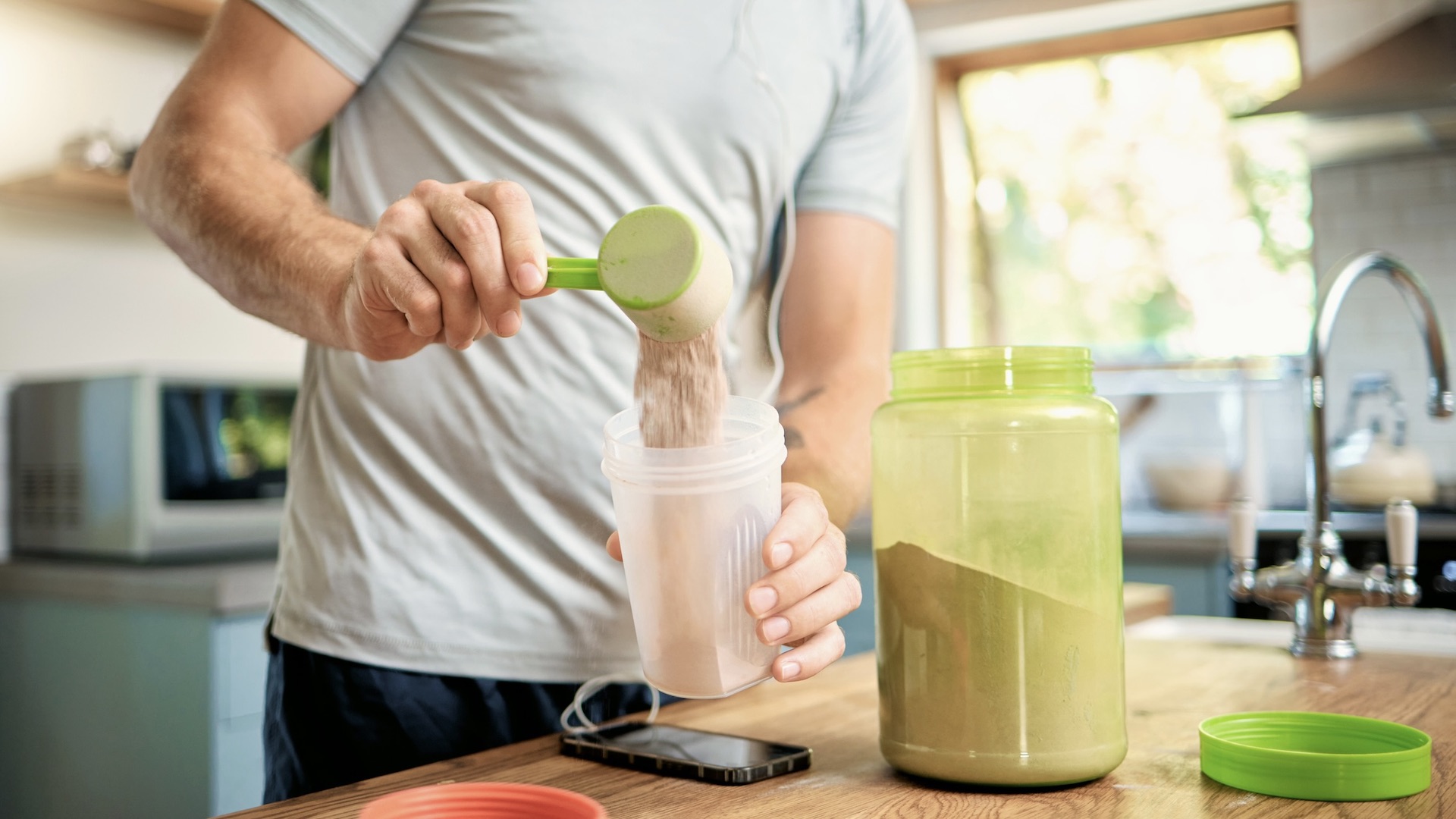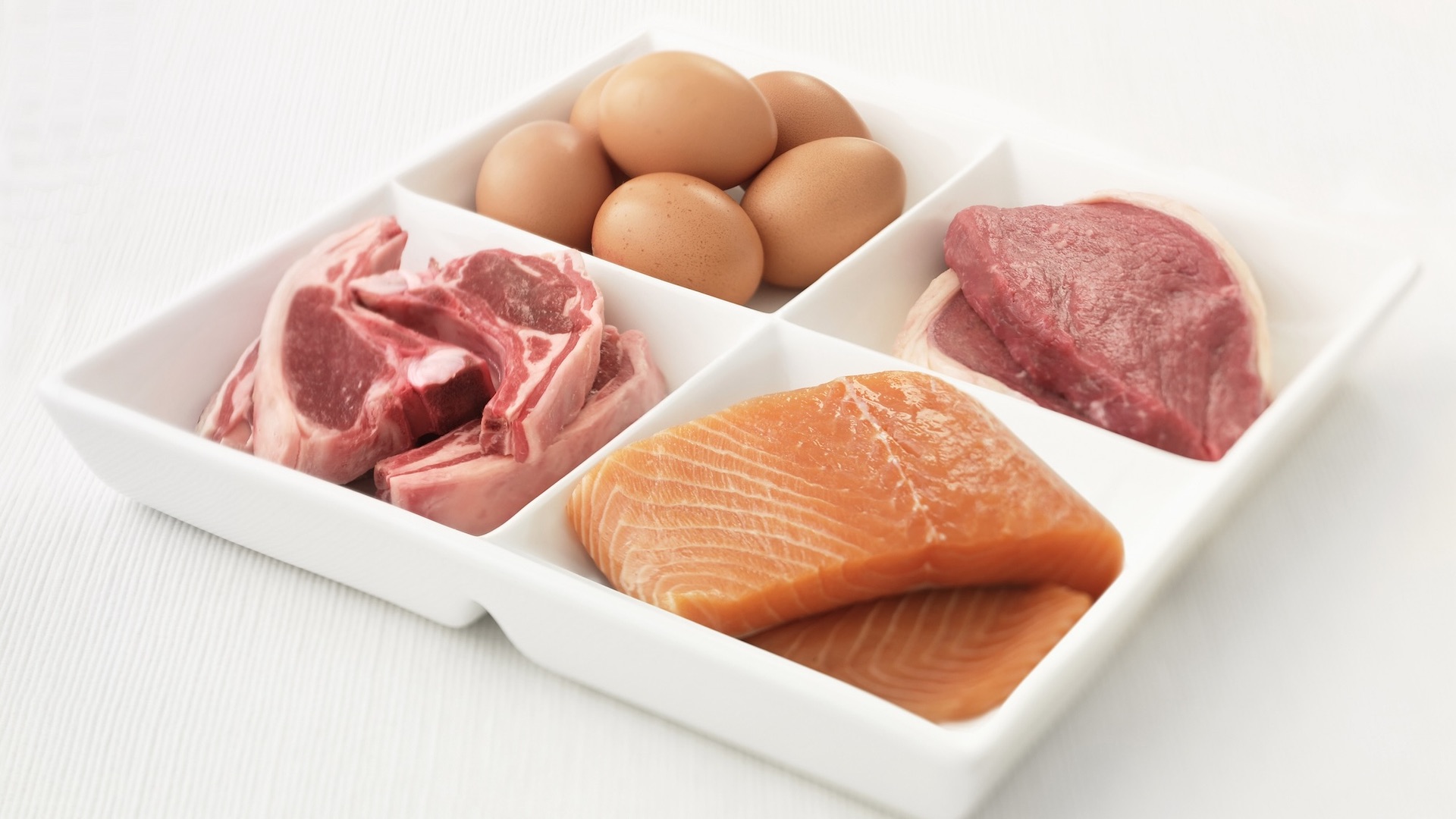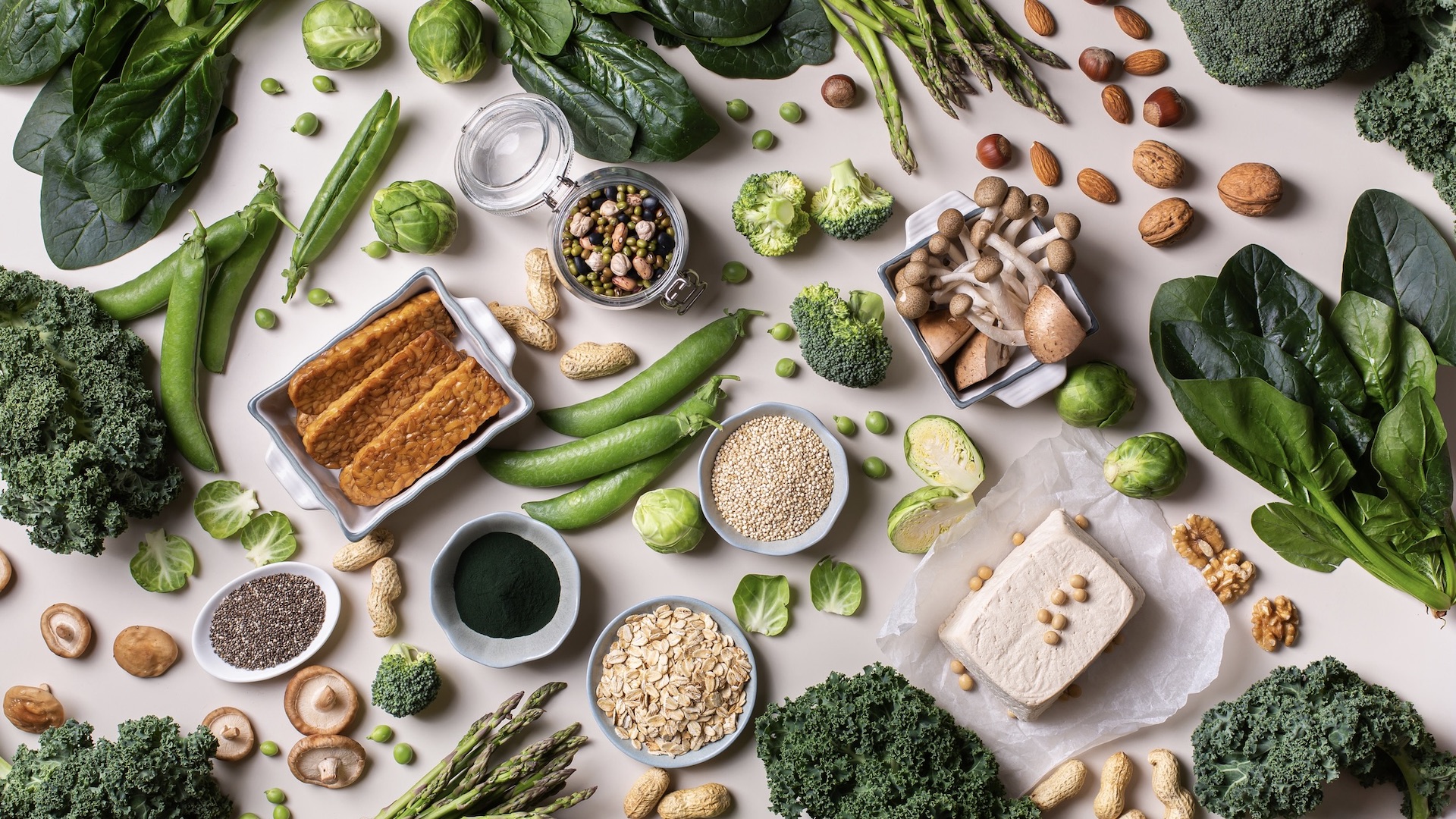Do you need extra protein after a run?
We question the need for extra protein in a runner’s diet – and explore expert advice on optimum amounts and timing

If you're a keen runner and looking for maximum recovery and, therefore, better performance, you’ll know the general advice on nutrition. Protein is part of a recommended healthy diet, and World Health Organisation (WHO) guidelines advise 20% of daily calories should be derived from protein for good health and wellbeing. That figure increases for those participating in exercise.
Most health and sports experts also suggest that runners eat some form of protein within an hour of finishing a run, but is that really necessary? And if so, what is the optimum amount of protein and timeframe for consuming it?
Why protein is important for runners
Protein plays a key role in maintaining body strength but do you know how? As Emma Goodman, a personal trainer with Bio Synergy, explains: “Protein and amino acids are the building blocks for muscle.”
Jamal Ramsay, a sports and exercise science expert, explains further. He says: “During exercise, your body breaks down muscle proteins to provide energy for your muscles. This breakdown continues after the exercise is finished and the body needs protein to repair the damaged muscles and help them to grow stronger.
“Consuming protein after exercise has been shown to stimulate muscle protein synthesis, which is the process by which new muscle tissue is created.”
Ramsay, who is cofounder of Jrny, adds that protein serves another purpose, to replenish glycogen stores in the body. “Glycogen is a form of carbohydrate that is stored in the muscles and liver and is used for energy during exercise.
“Consuming protein after exercise has been shown to enhance glycogen storage and replenishment, which can help improve endurance and athletic performance.
Advnture Newsletter
All the latest inspiration, tips and guides to help you plan your next Advnture!
“Overall, consuming protein after a run is important for repairing and rebuilding damaged muscles, as well as for replenishing energy stores in the body.”
Alice Williams, a personal trainer at OriGym, believes that protein is often overlooked as part of the nutritional advice given to runners.
She says: "When discussing running and nutrition, the focus is usually on carbohydrates and how they are needed to provide energy before a run. This is true, but as a result, the importance of protein is often overlooked.
"In addition, protein is typically associated with activities such as bodybuilding and weightlifting, especially for people who want to increase muscle mass.
"However, protein is an essential part of running nutrition because it is vital for muscle function and recovery."
Goodman also highlights a small study published in Medicine & Science in Sports & Exercise that found that consuming a high-protein diet helped people run faster than those who ate less.

How much protein do runners need?
Now we have established that protein should form an important part of a runner’s diet, there are further questions to address including how much you need to consume and when?
Paul Fletcher, a personal trainer with Discount Supplements, offers his advice on protein consumption. He explains that the amount of protein a runner needs after exercise depends on several factors, such as your body weight, age, gender and the intensity of the workout.
He says: “As a general guideline, athletes should aim for a protein intake of 1.2g to 2g per kilogram of body weight per day. This is more than for people who do not exercise.
"For example, if you weigh 70kg, you would need between 84g to 140g of protein per day. However, this is a general guideline, and individual requirements will vary based on factors such as exercise intensity.”
Goodman says: “The International Association of Athletics Federations (IAAF) recommends endurance athletes consume between 1.3g to 2.4g of protein per kilogram of bodyweight (88-165g). This is the equivalent of at least seven chicken breasts, so it could be a good idea to look for a good quality protein powder to boost protein consumption.”

Sources of protein
How you source your protein depends on your dietary choice. Alice recommends that runners should aim to get their protein from natural food sources, whether from animal or plant-based sources, although she says that a protein shake or bar can help you consume enough.
Sources of protein include lean meats, such as beef, lamb, pork; poultry, such as chicken, turkey and duck; fish and seafood; eggs; dairy products, such as milk, yoghurt (especially Greek yoghurt), cheese (especially cottage cheese); nuts and seeds; legumes, beans and tofu.
When should I consume the protein?
There is varying advice on when to consume protein. Fletcher advises that the timing of protein intake after a run can affect how effectively your body uses it to repair and rebuild muscles.
He says: “The general recommendation is to consume protein within 30 minutes to an hour after exercise. This is known as the ‘anabolic window’, during which your muscles are most receptive to nutrients."
Note, the anabolic window is the period when your body is more receptive to nutrients and can effectively utilise them for recovery and muscle synthesis.
Experienced district and country athlete George Patient, who is also the the founder of Merch Mates, agrees with the half-hour window, although he reports that this can be extended up to two hours. He refers to research analysis of the effect of protein timing on muscle strength and hypertrophy that suggests the window of opportunity might by up to two hours.
He says: “Research has shown that the anabolic window may be more flexible than previously thought and what's more important is your overall daily protein intake rather than precise timing. That being said, consuming protein soon after your run can still be beneficial, particularly for longer or more intense workouts that cause significant muscle fatigue.
“It's important to note that while the study, from 2013, challenges the strict adherence to the anabolic window concept.”
Another Max Cotton, founder and CEO of Another Round, offers a different recommendation. He says: “I’d say that protein timing is far less important than the overall consumption in the day, so I tell people not to stress if they are unable to get enough protein straight after a run.
“You could try to spread your protein intake throughout the day for maximal absorption, rather than all in one sitting. Like water, you don't drink all your water at the beginning of the day, you spread it out. Protein is the same."

Protein for runners: yes or no?
It's clear from the overall expert advice and research that runners, especially those who are training specifically for goal, should ensure they consume adequate protein.
The amount will be influenced by the intensity of exercise, your weight and other factors such as age and gender. However, there are general guidelines that you can use.
When. you consume the protein is the focus of debate. The traditional view is that runners should take in protein within half an hour of exercise and no more than an hour. However, some research suggest the protein can be consumed throughout the day and it is the amount rather than the timing that matters.
So, in answer to the question: "Do you need protein after a run?" it's a yes.

Fiona Russell is a widely published adventure journalist and blogger, better known as Fiona Outdoors. She is based in Scotland and is an all-round outdoors enthusiast with favorite activities including trail running, mountain walking, mountain biking, road cycling, triathlon and skiing (both downhill and backcountry). Aside from her own adventures, Fiona's biggest aim is to inspire others to enjoy getting outside and exploring, especially through her writing. She is also rarely seen without a running skort! Find out more at Fiona Outdoors.
